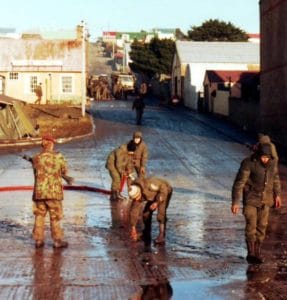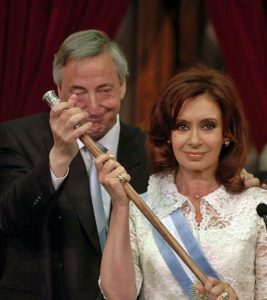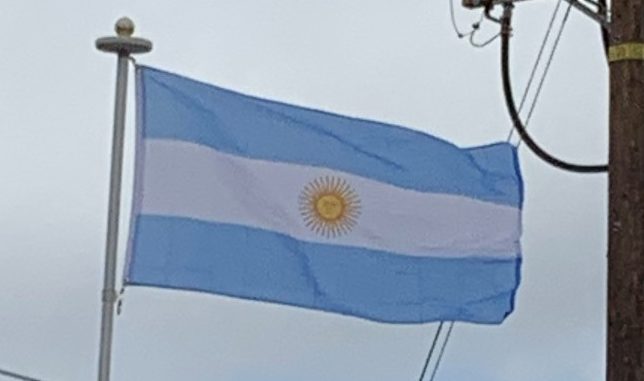The Proceso shut down Congress, removed the judges of the Supreme Court, banned political parties and unions, and resorted to the forced disappearance of suspected guerrilla members and of anyone believed to be associated with the left-wing. By the end of 1976 Montoneros had lost near 2,000 members; by 1977, the ERP was completely defeated. A severely weakened Montoneros launched a counterattack in 1979, which was quickly annihilated, ending the guerrilla threat. Nevertheless, the junta stayed in power.
In 1982, the then head of state, General Leopoldo Galtieri, authorized the invasion of the British territories of South Georgia and, on 2 April, of the Falkland Islands. This led to the Falklands War with the United Kingdom and an Argentinian surrender on 14 June.

Rioting on the streets of Buenos Aires followed the defeat and the military leadership responsible for the humiliation stood down. Reynaldo Bignone replaced Galtieri and began to organize the transition to democratic rule.
20th—21st Centuries, Kirchner Era:
Raúl Alfonsín won the 1983 elections campaigning for the prosecution of those responsible for human rights violations during the Proceso: the Trial of the Juntas and other martial courts sentenced all the coup’s leaders but, under military pressure, he also enacted the Full Stop and Due Obedience laws, which halted prosecutions further down the chain of command. The worsening economic crisis and hyperinflation reduced his popular support and the Peronist Carlos Menem won the 1989 election. Soon after, riots forced Alfonsín to an early resignation.
Menem embraced neo-liberal policies: a fixed exchange rate, business deregulation, privatizations and dismantling of protectionist barriers normalized the economy for a while. He pardoned the officers who had been sentenced during Alfonsín’s government. The 1994 Constitutional Amendment allowed Menem to be elected for a second term. The economy began to decline in 1995, with increasing unemployment and recession; led by Fernando de la Rúa, the UCR returned to the presidency in the 1999 elections.
De la Rúa kept Menem’s economic plan despite the worsening crisis, which led to growing social discontent. A massive capital flight was responded to with a freezing of bank accounts, generating further turmoil. The December 2001 riots forced him to resign. Congress appointed Eduardo Duhalde as acting president, who abrogated the fixed exchange rate established by Menem, causing many Argentinians to lose a significant portion of their savings. By the late 2002 the economic crisis began to recede, but the assassination of two piqueteros by the police caused political commotion, prompting Duhalde to move elections forward. Néstor Kirchner was elected as the new president.

Boosting the neo-Keynesian economic policies laid by Duhalde, Kirchner ended the economic crisis attaining significant fiscal and trade surpluses, and steep GDP growth. Under his administration Argentina restructured its defaulted debt with an unprecedented discount of about 70% on most bonds, paid off debts with the International Monetary Fund, purged the military of officers with doubtful human rights records, nullified and voided the Full Stop and Due Obedience laws, ruled them as unconstitutional, and resumed legal prosecution of the Juntas’ crimes. He did not run for reelection, promoting instead the candidacy of his wife, senator Cristina Fernández de Kirchner, who was elected in 2007 and reelected in 2011. Fernández de Kirchner’s administration oversaw a positive foreign policy with good relations with other South American nations; however, relations between the United States and United Kingdom remained heavily strained. Jorge Rafael Videla, who had led the repression during the Dirty War, was sentenced to life in a civilian prison in 2010 under de Kirchner’s administration; he later died in prison in 2013.
